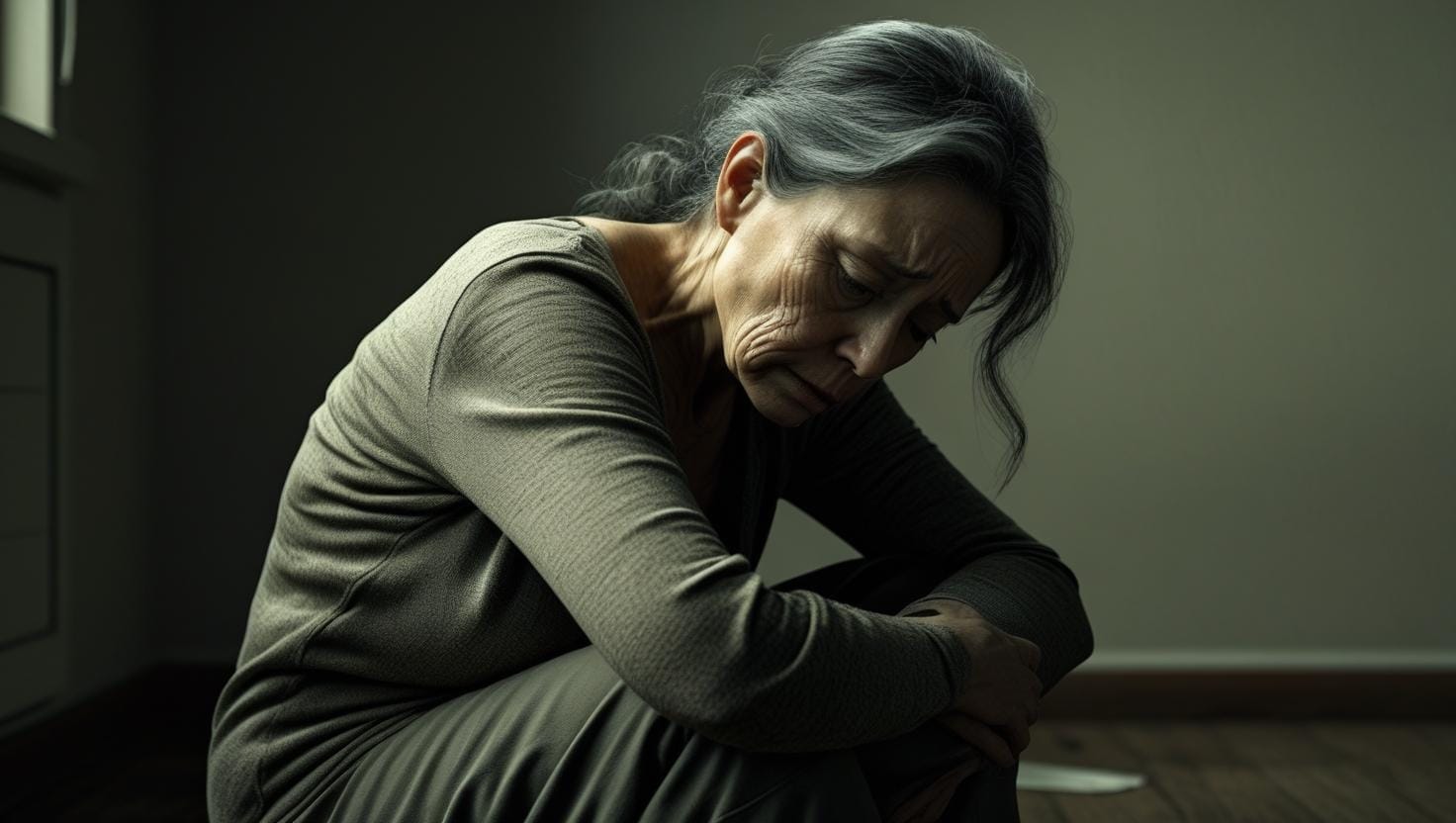Self-Care and Emotional Healing Strategies for Survivors of Narcissistic Abuse

If you’ve survived narcissistic abuse, you already know: the pain cuts deep. It's not just the relationship that breaks; it’s your self-trust, your sense of safety, your identity. And that’s exactly why self-care in this season of your life is not just helpful, it’s vital.
This guide isn’t about bubble baths or spa days (though those are lovely). It’s about real, restorative self-care that supports deep emotional healing. It’s time to reclaim your worth, step by step.
Understanding the Wounds of Narcissistic Abuse
One of the cruelest elements of narcissistic abuse is how invisible it can be, how it creeps in slowly, subtly, like a fog that clouds your inner compass before you even realize you're lost.
You may not have bruises to show. No physical scars. No screaming fights to point to. Instead, your wounds might look like this:
You second-guess every decision you make, even the smallest ones.
You apologize when you haven’t done anything wrong.
You feel like walking on eggshells has become your default mode.
You replay conversations in your head, trying to figure out what you did wrong.
You flinch internally at kindness, wondering when the “catch” will come.
And you wonder: Why do I feel so broken when nothing “that bad” happened?
That’s the insidious nature of psychological abuse; it hides in plain sight. Which brings us to the frog in the pot analogy:
Imagine placing a frog into a pot of boiling water. It will immediately try to escape. But if you place that same frog into cool water and slowly turn up the heat, it won’t notice the rising temperature until it’s too late. It will boil alive, unaware that it is in danger.
That’s what narcissistic abuse feels like.
The manipulation, control, and gaslighting often start slowly, wrapped in charm, praise, or promises. By the time the water is scalding, you’ve lost your bearings. You don’t even realize how much of yourself you’ve given away until there’s barely any of you left

Emotional Fallout from Gaslighting and Control
Gaslighting is more than just a buzzword; it’s a psychological weapon used to distort your perception of reality. You may have been told:
“You’re too sensitive.”
You’re imagining things.”
“That never happened.”
“You always overreact.”
Over time, these phrases burrow into your brain, convincing you that you can’t trust your own memories, feelings, or intuition. That’s not overthinking, it’s conditioning. See: https://www.risinglikethephoenix.com/gaslighting-explained-how-to-reclaim-your-reality
Loss of Identity and Self-Worth
The most profound wound isn’t what the narcissist took from you; it’s what you stopped giving yourself.
You may have once been joyful, confident, and curious. But after months or years in an emotionally abusive dynamic, your inner voice may be barely a whisper. You may no longer recognize the woman staring back at you in the mirror. You may have forgotten what it feels like to feel safe, loved, or even just… okay.
That isn’t your fault.
Narcissistic abuse is death by a thousand invisible cuts. It fragments your sense of self so quietly, so consistently, that your pain becomes normalized.
The beauty is this: what was taken can be restored. And self-care, real, soul-nourishing self-care, is the first step.
For more help, visit: https://www.risinglikethephoenix.com/rebuilding-self-worth-after-emotional-abuse
What Real Self-Care Looks Like in Recovery
Let’s be honest: the version of self-care that gets marketed to us, face masks, long baths, a glass of wine, might offer temporary relief, but it doesn't begin to touch the depth of what’s needed after narcissistic abuse.
This isn’t just about relaxation.
This is about reclamation.
Real self-care after abuse is about rebuilding trust in yourself, learning to feel safe in your body again, and tending to the tender places that have been neglected or violated.
It’s about learning that you are not too much. You are not too broken. And you are worthy of care that goes beyond survival.
For more on the stages of healing see: https://www.verywellmind.com/stages-of-healing-after-narcissistic-abuse-5207997
Rebuilding Self-Worth with Gentle Daily Rituals
After emotional trauma, even small acts can feel overwhelming. That’s okay. Self-care doesn’t have to be grand; it just needs to be intentional. Here are ways to slowly rebuild a relationship with yourself:
Mirror work: Look yourself in the eye each morning and say, “You are safe now. I’ve got you.”
Journaling: Try prompts like “What do I need today?” or “What am I learning about myself?”
Daily affirmations: “I am worthy of love.” “I trust my inner wisdom.” Even if they feel untrue now, repetition rewires the brain over time.
Talk therapy: A trauma-informed therapist can help you process the pain, and more importantly, help you remember who you were before the damage, and who you’re becoming now.
These rituals don’t erase pain, but they create space to breathe. To remember. To begin again.

Tending to Your Nervous System
Abuse doesn’t just affect your thoughts; it hijacks your entire body. Most survivors live in a constant state of hypervigilance. You might:
Struggle to fall asleep
Startle easily
Get exhausted by small tasks
Feel emotionally numb or “checked out.”
This is not laziness or weakness. This is your nervous system doing what it has to do to keep you safe.
Now, it’s time to teach your body that the emergency is over.
Here are self-care practices that gently regulate your nervous system:
Sleep: Prioritize quality sleep like it’s sacred. No screens before bed.
Nutrition: Choose foods that stabilize blood sugar and mood.
Breathwork: Box breathing or a long exhale activates the calming parasympathetic system.
Nature: Just five minutes outside can reduce stress hormones.
Movement: Try trauma-sensitive yoga, walking, or stretching.
Your nervous system isn’t broken. It’s healing. And you are the healer now. Of yourself.
Recovery Steps That Support Emotional Healing
Step 1: Create a Safe Emotional Environment.
Before you can heal, you need to feel safe.
Clear out what doesn't serve your nervous system, including people, places, and patterns that trigger fear or shame.
Limit contact with the narcissist
Mute toxic social media accounts
Curate peaceful surroundings
Choose calm over chaos
Peace is a boundary. You don’t owe anyone an explanation.
Step 2: Name and Validate Your Emotions
Gaslighting taught you to silence your feelings. Now is the time to listen to them.
Try saying:
“I feel ___, and that makes sense given what I’ve been through.”
Your emotions are not wrong. They are roadmaps back to yourself.
Step 3: Learn to Receive (Support, Love, Help)
You’ve carried so much.
But healing doesn’t happen in isolation.
Let a friend listen
Say yes to support
Join a group where your story is met with compassion
Receiving is a skill. You’re allowed to get good at it.
Step 4: Establish Boundaries Without Guilt
Boundaries say: “I honor my needs.”
Examples:
“I’m not available for blaming conversations.”
"I need space before I respond.”
“No.”
Every time you set a boundary, you remind yourself: I matter.
For more help, see: https://www.simplypsychology.org/setting-boundaries.html

Self-Care Tips for Everyday Empowerment
Morning Grounding Rituals
Hand to heart: “I’m safe now.”
Warm tea or lemon water
Read or write something nourishing
Begin gently, no pressure, just presence
Micro-Moments of Peace
Light a candle
Go outside and feel the sun
Breathe deeply
Sit with silence
Listen to music that lifts you
Evening Wind-Down Rituals
Write one win from your day
Light a soft lamp or use a weighted blanket
Give yourself a slow breath or gentle foot rub
Let your body unclench
Try some magnesium cream or essential oil on your wrists
Listen to a guided meditation
Journal Prompts
What part of me needs love today?
What does peace feel like in my body?
What am I grieving, and what am I growing into?
If I trusted myself fully, what would I choose next?
From Surviving to Thriving: The Bigger Picture
If you’re reading this, take a deep breath:
You made it out. Maybe barely. Maybe with trembling hands. But you’re here.
Now ask yourself, what kind of life will I build with this freedom?
Thriving isn’t flashy. It’s subtle. It’s sacred.
It looks like:
Trusting yourself again
Laughing, really laughing
Feeling safe in your body
Choosing people who honor your boundaries
Looking in the mirror and saying, “Welcome back.”
You may still have tough days. That’s normal. That’s human.
But the difference is, you’re no longer abandoned. You’re no longer gaslit.
You’re finally home, in yourself.
This isn’t just recovery.
This is your resurrection.
You are not too late.
You are not too broken.
You are not alone.
On the other side of this storm, there is sunlight.
And on the other side of this pain… is you.
Download Your Free Guide to Healing from Narcissistic Abuse
Categories
Rise Weekly Newsletter
Because healing isn’t just about surviving, it’s about rising. Rise Weekly delivers empowering insights, gentle reminders, and soulful tools to help you reclaim your strength, set powerful boundaries, and rebuild a life that feels like you. If you're ready to rise above trauma and step into your next chapter with clarity and courage - this is your space.
Created by © Suzanne Startari with systeme.io




